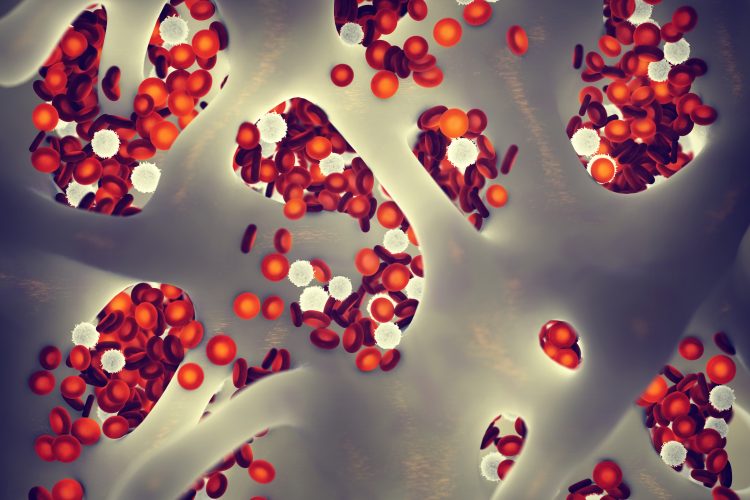How hematopoietic stem cells retain their regenerative potential
Posted: 8 May 2024 | Drug Target Review | No comments yet
Researchers found that genetic depletion of cyclophilin A results in stem cells distinctively lacking intrinsically disordered proteins.


Scientists at Baylor College of Medicine have discovered the enzyme cyclophilin A is crucial for hematopoietic stem cells (HSCs) to retain their regenerative potential and avert the effects of aging.
Although HSCs normally remain dormant within bone marrow, they can activate and replenish blood cells continuously, maintaining a fairly youthful profile throughout the life of an organism. Corresponding author Dr André Catic, assistant professor and CPRIT Scholar in Cancer Research in the Huffington Center on Aging at Baylor, explained: “A driving force of cellular aging is the accumulation of proteins that have reached the end of their useful life…With age, proteins tend to misfold, aggregate and accumulate inside the cell, which leads to toxic stress that can disrupt cell function.”
Cells that often engage in cell division, such as progenitor cells, can dispose of protein aggregates through dilution. Contrastingly, long-lived HSCs, which do not divide often, face the issue of the accumulation of misfolded proteins and resulting toxic stress. However, HSCs stay unaffected to aging.
Dr Lauren Maneix, co-first author of the work and at the Catic lab while working on this study added: “Understanding the molecular mechanisms that contribute to HSC aging not only contributes to the field of normal HSC biology, but also may have significant clinical relevance for cancer treatment.”
Past studies have shown that mammalian cells express several hundreds of molecular chaperones, proteins that preserve or alter the three-dimensional (3D) conformation of existing proteins. One of the most abundant chaperones, cyclophilins, have been implicated in the aging process, but the mechanisms by which they affect cellular proteins has not been studied.
The researchers, working with mice, first characterised the protein content of HSCs and found that cyclophilin A is a prevalent chaperone. Further experiments demonstrated that the expression of cyclophilin A was greatly decreased in aged HSCs, and genetically eliminating cyclophilin A accelerated natural aging in the stem cell compartment. Contrastingly, reintroducing cyclophilin A into aged HSCs improved their function. Therefore, these results support cyclophilin A as a crucial factor in the longevity of HSCs.
Then, the team investigated the proteins with which cyclophilin A interacts, preserving their stability. Dr Catic commented: “We found that proteins enriched in intrinsically disordered regions are frequent targets of the chaperone.”
Intrinsically disordered proteins naturally change their 3D conformation to interact with different proteins, nucleic acids or other molecules. Thus, proteins rich in intrinsically disordered regions regulate many cellular processes by promoting specific activities between molecules. Dr Catic explained: “Due to their flexible nature, intrinsically disordered proteins are inherently prone to aggregation. Cyclophilin A supports these proteins in fulfilling their functions and simultaneously prevents them from clumping.”
Furthermore, the results suggest that cyclophilin A interacts with intrinsically disordered proteins from the moment of their synthesis. “As these proteins are being made, cyclophilin A makes sure they keep the appropriate conformations and are maintained at sufficient levels,” Dr Catic said. “Genetic depletion of cyclophilin A results in stem cells distinctively lacking intrinsically disordered proteins.”
“For the first time, our study showed that producing disordered proteins and maintaining the structural diversity of the proteins in a cell plays a role in HSC aging,” Dr Maneix concluded.
This study was published in Nature Cell Biology.
Related topics
Protein, Protein Expression, Stem Cells
Related conditions
Aging
Related organisations
Baylor College of Medicine








